




 Professor Oriana Baddeley
Professor Oriana Baddeley
It is a common misconception that research and creativity have an uneasy partnership, that artists and designers operate in different spheres to those of the traditional university scholar or laboratory research team. However, this stereotype is being increasingly questioned by the ways our changing world reveals shared concerns around social and ecological challenges, producing multidisciplinary approaches to knowledge creation and, embracing new modes of communication. Through a series of conversations and presentations around key issues this conference aims to explore the richness and diversity of the approaches used by practitioners to offer solutions to shared problems and bring new understandings to a wide public.

In practice research, forms of intuitive, embodied, tacit, imaginative, affective and sensory ways of knowing can be conveyed, and its sharing presents an opportunity for the modernising and revitalising of research communication, uncovering novel dissemination routes in the digital era.
James Bulley & Sahin Özden
“
09.00 Registration
Welcome, Deputy Vice Chancellor Research, Knowledge Exchange and Enterprise
Professor David Mba
09.30
At this conference, we celebrate not only the theoretical exploration of art but also the vital concept of practice as research. We passionately believe that learning by making, by immersing oneself in the act of creation, holds immense value in shaping our understanding of the artistic process and its impact on society.

09.35
Programme Introduction, Professor Oriana Baddeley
PANEL 1
09.45
What Would the Earth Have Us Do
Siân Sutherland (Chair), Nicholas Rochat, Dilys Williams
11.15-11.40
PANEL 2
11.40
Dialogue, Presence and The Gift
Samson Kambalu, Pratāp Rughani, Mark Sealy, Oriana Baddeley (Chair)
13.15-14.15
14.15
Afternoon Programme Introduction, Professor Oriana Baddeley
PANEL 3
14.20
We’re All Animals
Jennie Stephens, W.K.Lyhne, Robin Maynard, Emily Doolittle, Francine Stock (Chair)
16.00-16.20
Panel 4
Feeling Our Way
Sonia Boyce, Tanita Tikaram, Pratāp Rughani (Chair)
18.00-19.00
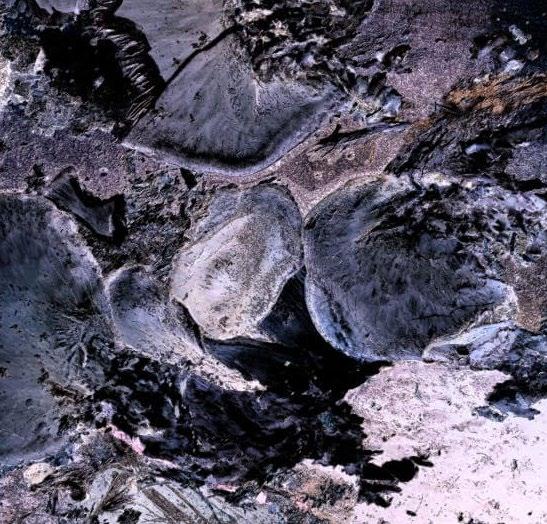
Siân Sutherland (Chair), Nicholas Rochat, Dilys Williams

Our ability to thrive, as humans in a more than human world, depends on our relationships, with each other and in wider living systems. Creative practice involves the relational aspects of seeing, knowing, and doing in the world; an iterative process, led by intention, developed through emergence. Through articulation of an area of enquiry, the session explores what the earth is telling us, demonstrations in response and realisation of an expansion in possibilities for designers and designing. The session seeks to engage and involve all present in the room in consideration of fashion as personal, social and biosphere interaction, mediated via materials and energy sources, both human and manufactured.
Image: Of Cybernetics and Kinship Aditi Srivastava
PlasticFree: Throughout human history, we can see significant shifts that fundamentally change how we live. These giant leaps of progress always come from the mavericks, the creatives, the engineers and architects, the designers and artists. Rarely do they come from the bankers or economists.
And now, here in 2023, with our home planet on fire, threatening the existence of everything that lives upon it, we need those maverick thinkers more than ever before.
The creative industry today has a different level of responsibility, to reimagine our future and build a roadmap to it, dragging industry along, using new materials and adopting new systems. But the creative industry has not been trained for this challenge. They need tools to help inspire, educate, empower them to create the essential change needed.
PlasticFree is the first global solutions platform, built for the 160m creatives, to ignite them to rethink everything and shows us that change is possible, today, at scale and at speed.
Mover is aiming to crack an outdated sports industry, by questioning the status quo of plastic based textiles.
Plastic has monopolized the market, but it has also dictated its own mode of production. The hegemonies of Gore-Tex®, PTFE or PU membranes, polyamide and polyester fabrics (all plastics) have made it virtually impossible for creators to imagine different ways of-making sports clothes. Thus, Mover embarked on the crusade: negotiating, insisting, convincing suppliers to change their ways, with many “natural solutions” that just did not exist anymore.
It took years of testing high density cotton and wool in different weights and structures. Only the right combinations and nuances create waterproof natural fabrics, warm but fast-drying materials, light and breathable layers.
By demonstrating the success of natural fabrics, a low-tech / high efficiency design approach, in the field of outdoor clothing, Mover hopes to lead the way for a shift in the garment industry.
It’s a simple question, but within those few words lies a profound re-purposing of what it means to be a designer or an artist; a considering of living nature as our main audience, participant, beneficiary and benefactor.

Artists and designers make sense of things, changing the ways that reality is looked at and interpreted. By drawing on science and ethics, information and intuition, written and tacit knowledges, and through engaging in practice using co-inquiry and participatory design, possibilities of fashion beyond its dominant extractive and exploitative logic are manifest. Tearing down the borders of our current understanding of society, self and the biosphere is necessary to creativity within earth systems boundaries, as exemplified through a heuristic model of fashion as sustainability in action which is being iterated through the practice of researchers, designers, tutors and the over 100k learners on courses based on the model.
As conscious participants in a more than human world, designers’ questioning, visioning and manifesting capabilities are critical to achieving an earth systems justice era, a possibility that is mind-blowingly exciting and challenging.
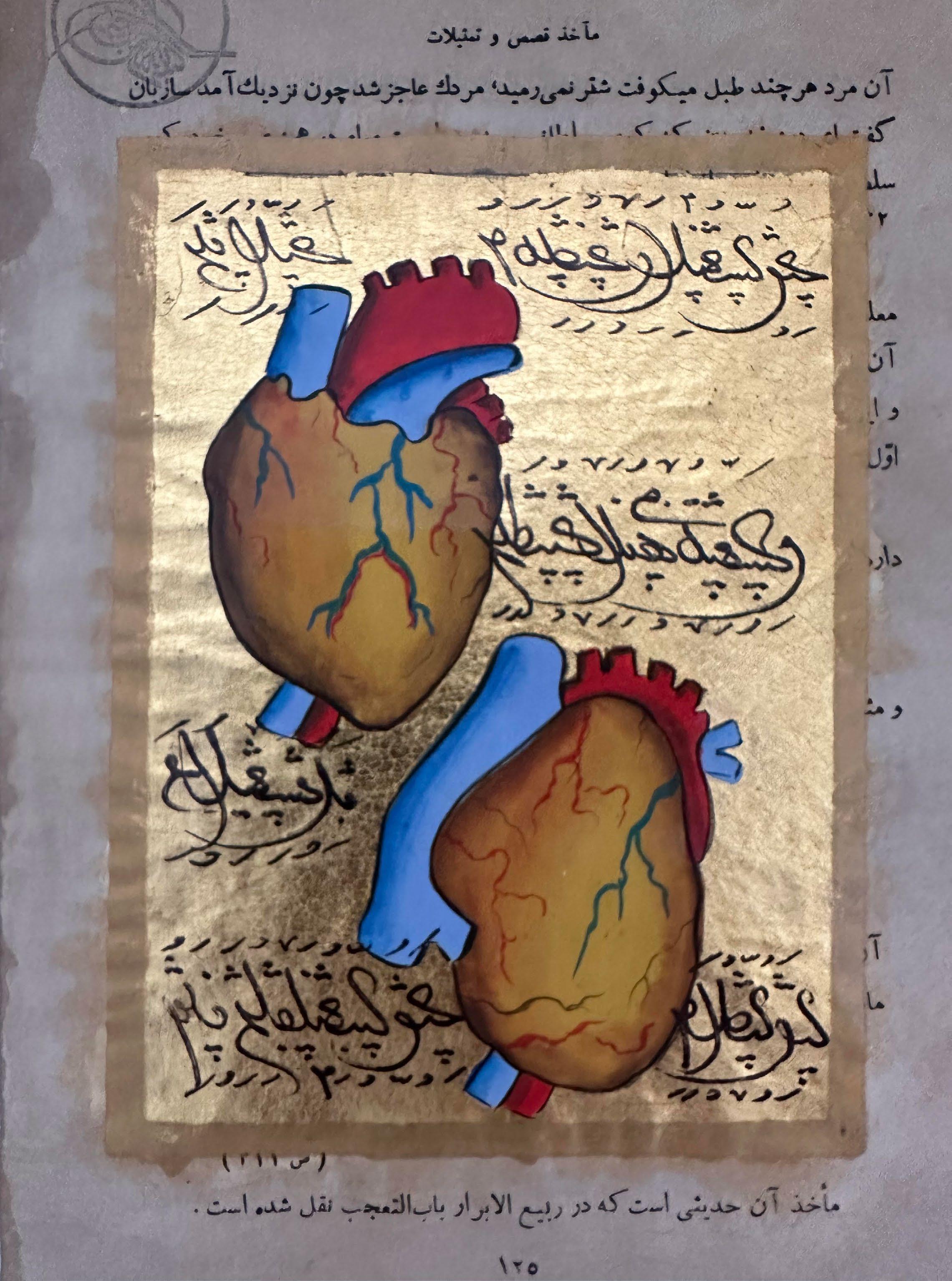
Samson Kambalu, Pratāp Rughani, Mark Sealy, Oriana Baddeley (Chair)
If dialogue is only carried out between those that agree can there be any true change? Is it the role of the artist or curator to impart knowledge to people ready to receive that knowledge or should it be a more challenging process of engagement with those existing outside of a shared set of social beliefs? Through a series of fascinating case studies this session explores some of ways particular historical contexts have been used to test the boundaries of shared understanding and the methods used to create constructive dialogue.


Capitalism starts with the idea that we lack and we have to save up, but with the gift economies, like in southern Africa, we start with the idea that we have too much. In a gift economy, the world is the Garden of Eden, and this is a problem to solve, there are too many fish in the sea, too many crops, too many animals in the bush. What are we going to do with all this stuff? Art is primarily to take care of this excess. My problem is abundance, the abundance of life, the abundance of time.
A gift usually leads to obligation. Like at Christmas, your brother or sister buys you something, you feel obliged to buy them something. But this exchange is seen as petty in a gift economy. You can’t get rid of excess through exchange.
An abiding theme in my work is how to rebuild the ‘connective tissue’ of a culture in the aftermath of violence and atrocity. In this short presentation I will explore some new footage from a forthcoming gallery installation Chambers of the Heart (2024) working with visionary people who dare to develop dialogue in the aftermath of unspeakable loss. What might be born when victims and perpetrators seek to see what can be recovered in each other’s humanity? Can such stories offer another path through polarisation to help interrupt the slide towards alienation and hatred?
Visible – Invisible: Over time and space and through never-ending liminal ways of working, I have engaged with artists and photographic histories by visiting both the familiar and seeking out the unfamiliar in the body politic of cultural production, where words become images and images become words, where bodies become signs and signs become bodies. Images, like the written and spoken word, transmit cultural knowledge, fuel memory, and root a people’s sense of being to their place of belonging. Curatorial dialogues and lines of enquiry concerning those silenced underpin the work I have supported through my role at Autograph. The aim being to destabilise hegemonic structures that underpin cultural production.
Jennie Stephens, W.K.Lyhne, Robin Maynard, Emily Doolittle, Francine Stock (Chair)
In a move from pagan societies, where nature and earth were divine mothers, worshipped as fertile givers of life, and mortal man was subject to them, JudeoChristian societies promoted a new concept: a single (male) God who made the earth, requiring his creation, Man, to “Be fruitful and multiply…subdue it: have dominion over every living thing over the earth. The idea of dominion became interpreted as an invitation to use nature for our convenience (Sancton, 1989).
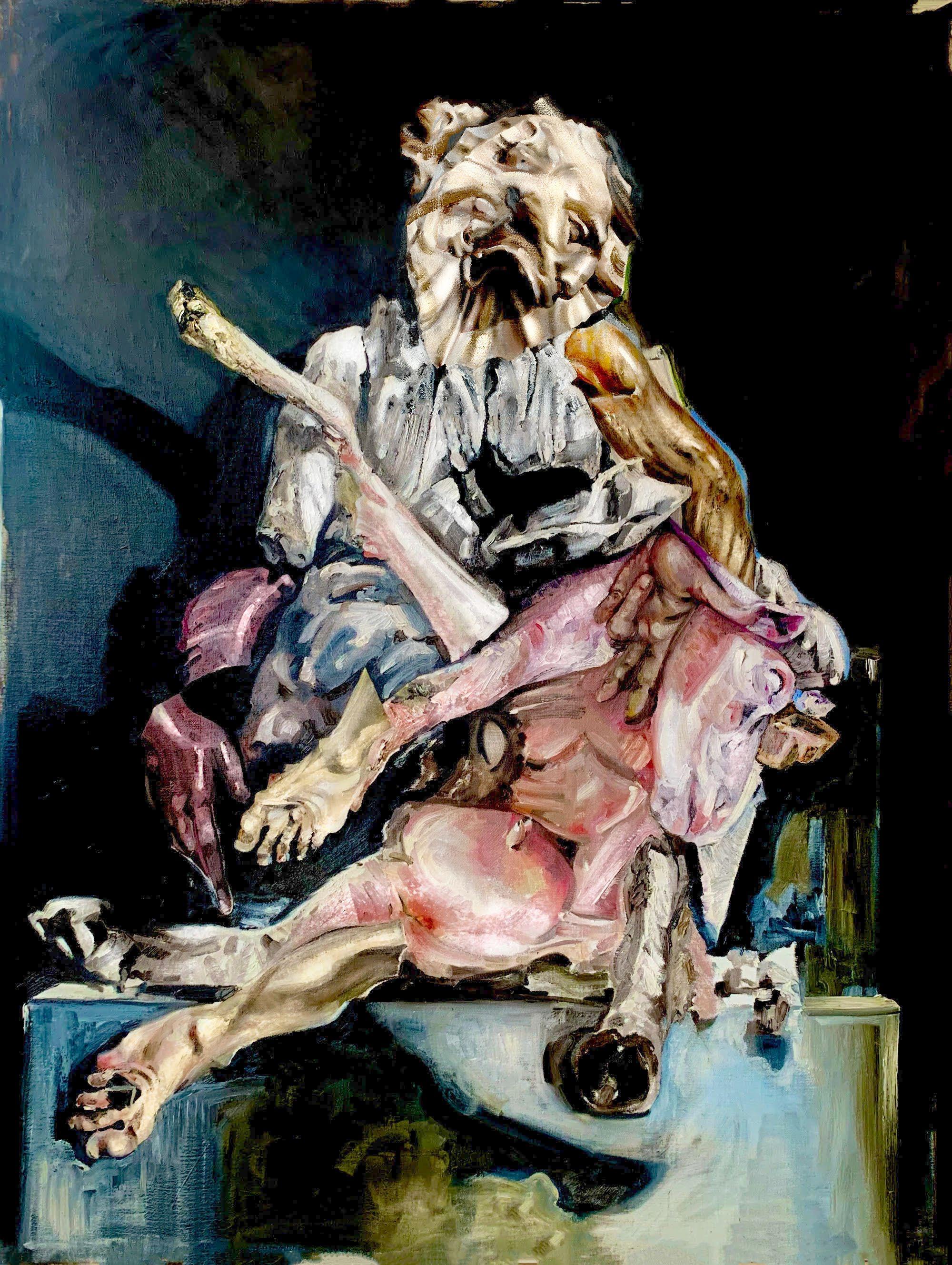
As part of the current and necessary move away from this domination, the panel will examine an ontological kind of humanism that activates multiple ways of constructing communities, to find the affirmative ethics that bind us together. By drawing on the differing disciplines across the panel of speakers , we hope to support human and animal communal relations across species, to propose that we are not ‘apart’ from nature but part of nature.

Jennie Stephens
To move on a path toward transformative climate justice, a collective commitment to unlearning (as well as learning) and creative exnovation (as well as innovation) is urgently needed. Universities have a critically important role in disrupting the concentration of wealth and power that is resisting transformation, but to leverage this potential higher education institutions need to prioritize humility, accountability, and reciprocity with the non-human world

We Are All Animals: At a time when the domination over every species on Earth has brought us to the edge of extinction, this secular research project proposes the animal in both the tropes of the Virgin Mary and the Lamb of God need addressing. By examining historical power structures, in particular the that of the Church, and by connecting the weeping of the Virgin Mary in the hymn Stabat Mater and the sound of ewe sheep at a particular moment in their short lives, this project proposes that these two form the basis of a new anthem to give voice to their otherwise reticent vocal output from both mothers, the ewe and trope of Mary. The result will be a specially composed score, called LambEnt, using animal sound and traditional music techniques to form a new anthem echo a wider vocal longing for those seeking agency over their lives, particularly now.
300 million women have an unmet need for safe contraception. Yet enabling that choice would cost just $10.00 per woman annually. 130 million girls are not in school – many excluded once their periods start. Alongside delivering those rights, education and family planning combined are the third most effective climate solution.
Ani(music)ality : In this presentation, composer and zoomusicologist Emily Doolittle explores points of similarity between animal song and human music. Using plentiful sound examples, she discusses such crossspecies characteristics as the use of pattern and surprise to hold the attention of listeners, the cultural transmission of songs, and the use of interactive sound exchange to build community
We Feeling Our Way Sonia Boyce, Tanita Tikaram, Pratāp Rughani (Chair)
Our “Searching and Researching Through Practice”conference culminates with a ‘deep dive’ into practice-as-research, inside the creative laboratory of Sonia Boyce and Tanita Tikarams’ practice.

Searching and Researching through Practice

When discussing my art practice, that involves the performances of others, I’m often asked who authored the work? i.e. with whom can the act of creativity be attributed? The performances are often improvised without a discernible script or rehearsal and documented. These performance documents form the basis for the artworks that are displayed. A secondary question I’m often asked is where is the artwork? Does it reside in the performance or the work on display? This presentation will address recent works like Feeling Her Way which was presented at the British Pavilion in 2022 for the 59th Venice Biennale. Here, I will discuss the relation between the process and the output.”

Professor Oriana Baddeley is Chair of the Practice Research Advisory Group (PRAG-UK) and a researcher at University of the Arts London (UAL) where she was previously Dean of Research from 2011-2021. An art historian by training, she has spent her career working within the context of practice. She oversaw her own institutions submission to REF2014 and 2021 and was also a sub-panel member of the Art & Design: History, Theory Practice unit of assessment. As chair of PRAG UK she is a vocal proponent of the better evidencing of practice research through recognizing not only its significance as research but also its value to the UK’s creative industries.

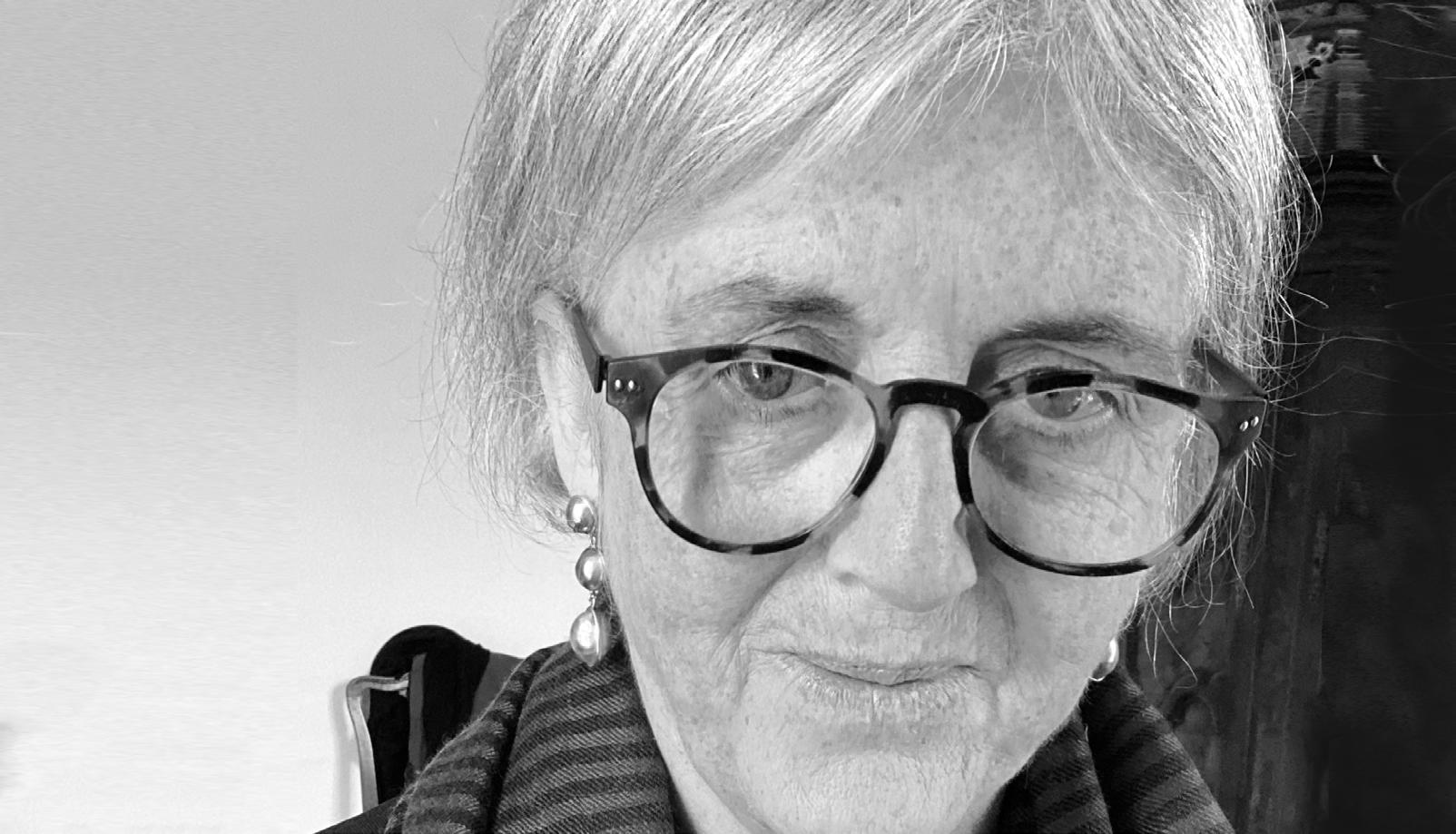
https://researchers.arts.ac.uk/1868-oriana-baddeley
British born artist Sonia Boyce OBE RA has been Professor at the University of the Arts London since 2014. As the inaugural Chair of Black Art & Design she led on a 3-year research project into Black Artists & Modernism, which led to a BBC documentary Whoever Heard of a Black Artist? Britain’s Hidden Art History (2018). In 2022, Boyce represented the UK at the 59th Venice Biennale with Felling her Wat, for which she was awarded the Golden Lion for Best National Participation. In 2019, Boyce received an OBE for services to art and in 2016, Boyce was elected a Royal Academician. Recent solo exhibitions include Feeling her way, The British Pavilion, Venice, Italy (2022), touring to Turner Contemporary, (2023) and Leeds Art Gallery (2023); In the Castle of My Skin, Eastside Projects, (2020), touring to Middlesbrough Institute of Modern Art, (2021); Sonia Boyce, Manchester Art Gallery, (2018) and Sonia Boyce: We move in her way, Institute of Contemporary Arts, (2017). In 2015 she was included in All the World’s Futures, the International Exhibition of the 56th Venice Biennale, curated by Okwui Enwezor.
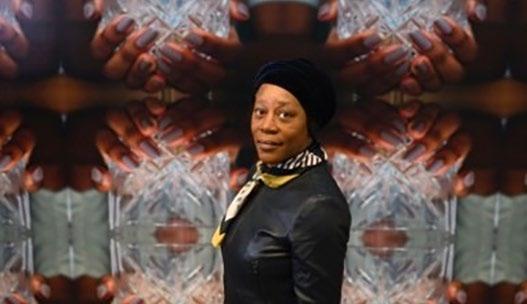

Her work is held in the collections of Tate, London, UK; Victoria & Albert Museum, London, UK; Arts Council Collection, London, UK; The Government Art Collection, London, UK; British Council Collection, London, UK and Pallant House Gallery, Chichester, UK.
Canadian-born, Glasgow-based composer Emily Doolittle is an Athenaeum Research Fellow and Lecturer in Composition at the Royal Conservatoire of Scotland. She has an ongoing interest in zoomusicology—the relationship between animal songs and music—which she explores in both her composition and through interdisciplinary collaboration with biologists.
https://emilydoolittle.com
Oxford based artist and writer Samson Kambalu (b. 1975 Chiradzulu, Malawi), studied at the University of Malawi, Nottingham Trent University and Chelsea College of Art and Design. His work has been exhibited around the world, including Dakar Biennale, Tokyo International Art Festival, and the Liverpool Biennial, and featured in All the World’s Futures, Venice Biennale 2015, curated by Okwui Enwezor. Kambalu’s work is part of the national art collections of Tate, the British Council, and the Contemporary Art Society, and his research fellowships include Yale University and the Smithsonian Institution. He is the winner of Trafalgar Square Fourth Plinth Commission for 2022-2024. Kambalu is an associate professor of fine art at The Ruskin School of Art and fellow at Magdalen College, University of Oxford.

https://samsonkambalu.com/
W.K.Lyhne is an artist with a wide ranging practice. She is currently showing a substantial triptych at the Zabludowicz Collection in London. She was the British School in Athens Arts Researcher in 2022 in Greece. She is also the founder of The Sequested Prize, a self-portrait prize started during lockdown and now in its second iteration, with funding from the Arts Council . She is currently shortlisted for the John Moores Painting Prize 2023 and is the subject of an extended interview with the collector Maryam Eisler in the next issue of Conde Naste’s LUX Magazine. She is a practiced- based doctoral student at UAL . We Are All Animals , the panel title is also the name of her PhD research project., supervised by Dr. Mo Throp and Dr.Catherine MacCormack.
www.wklyhne.co.uk
www.thesequestedprize.com
https://www.lux-mag.com/w-k-lyhne-on-the-representation-of-women-in-art/


Robin began his environmental career more than 30 years ago joining Friends of the Earth as a volunteer just before the Chernobyl disaster. That grim event led to his first paid job, tasked with tracking radioactive fall-out across the UK, finding more contamination than officially admitted, so securing greater compensation for affected farmers. He has senior positions at Friends of the Earth, FARM (championing family farms, challenging GM crops), the Forestry Commission, The Soil Association and the Wildlife Trusts. Following a short stint presenting BBC Radio 4’s Farming Today, he undertook several investigative trips for Costing the Earth, including visiting Chernobyl 10 years on ; Bhopal in India to meet victims of the catastrophic pesticide plant explosion; and as an environmental consultant for Anita and Gordon Roddick’s charitable activities through The Body Shop Foundation which provided strategic input to Compassion In World Farming’s research and campaign against the abuse of antibiotics in intensive livestock production. Robin has served as a trustee over the yearsfor the Countryside Regeneration Trust, EIA, and Population Matters where he has been Executive Director since 2016.
https://populationmatters.org/news/2018/11/meet-our-new-chief-executive/ www.robinmaynard.com
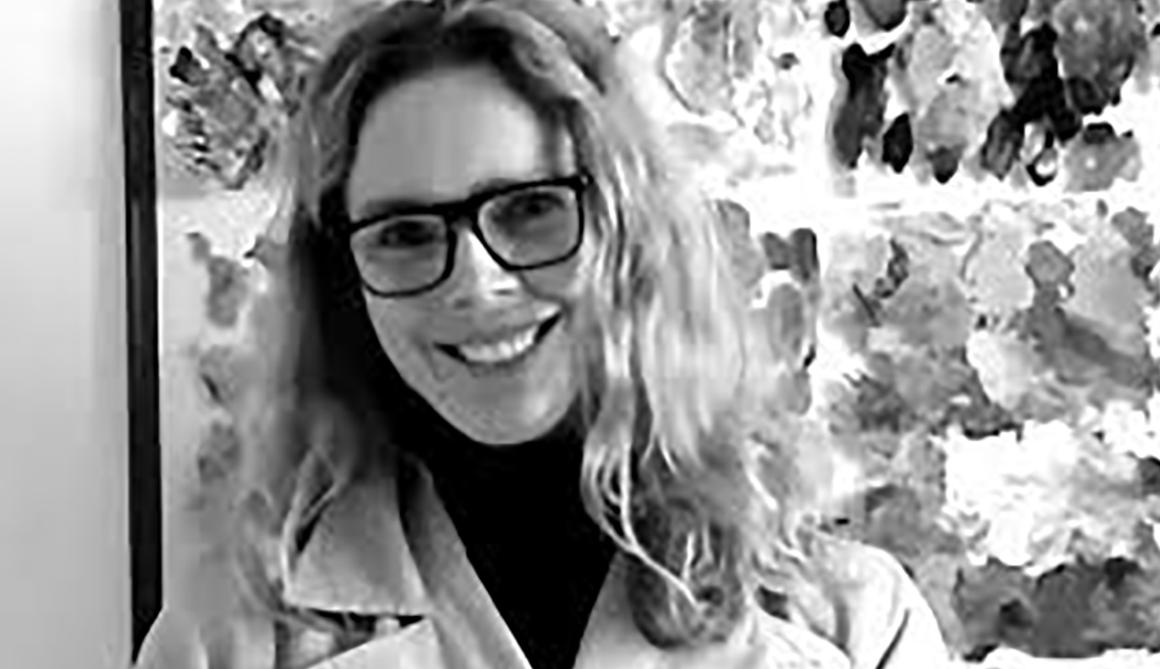
Professor David Mba is the Deputy Vice-Chancellor, Research, Knowledge Exchange and Enterprise at the University of the Arts London (UAL). Prior to joining UAL, he was Pro Vice-Chancellor, Research and Enterprise, at De Montfort University. Whilst at DMU he also held the post of Pro Vice Chancellor/ Dean for the Faculty of Computing, Engineering and Media. Other roles he has held include, Dean of Engineering at London South Bank University, and Associate Dean at Cranfield University’s School of Engineering.
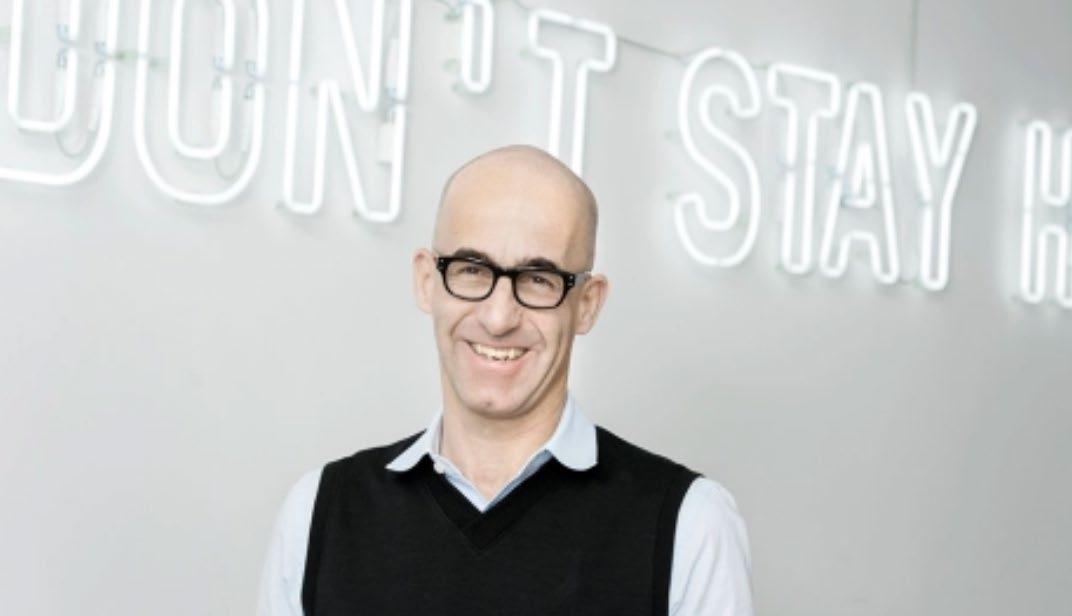

He is a Principal fellow of the HEA and is strongly committed to social Justice. He is a trustee of the Stephen Lawrence Day Foundation, a member of Advance HE’s Equality, Diversity and Inclusion strategic advisory group, a member of the advisory board of the Association for Black and Minority Ethnic Engineers and more recently, a board member of the Hamilton Commission - set up to increase representation of Black people in UK motorsport. https://researchers.arts.ac.uk/2076-david-mba

Nicolas Rochat is the CEO and founder of Mover Plastic Free Sportswear, the first totally uncompromisingly plastic free unisex collection. His passion for the outdoors, lead him to becoming an uncompromising pioneer in the world of textiles. Spending all his free time in the Swiss Mountains, hiking, skiing, touring, and mountain biking, created an interest in the outdoor sportswear market, and subsequently the textile industry. Shocked by the impact of the industry on the environment, Nicolas took a strong stance against microplastic pollution, as a relentless voice to combat greenwashing around sustainability and production.
At the helm of Mover, Nicolas has progressively specialized in the use of wool and natural fibers to replace synthetics for various sports activities. Now partnering with new textiles such as Bananatex as well as traditional fabrics such as high-density woven cotton and Swiss alpaca wool. His search for better comfort through improved breathability and thermoregulation naturally laid the foundation for a new project, the world’s first 100% plastic-free outdoor collection launched in October 2021.
https://mover.eu/pages/manifesto
Dr Pratāp Rughani is a documentary film-maker and Associate Dean of Research at the London College of Communication, UAL. He is Professor in Documentary Practices and Chair of UAL’s Professoriate. He serves on the ELIA Executive and is Trustee of Himalayan environmental charity Pragya and Director of Lotus Films. In 2023 he joined the steering group of PRAG-UK
https://www.lotusfilms.co.uk/category/events/
https://researchers.arts.ac.uk/857-pratap-rughani
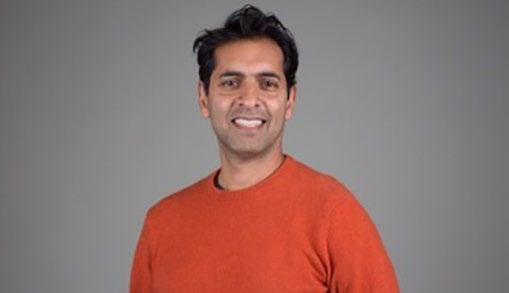
Dr Mark Sealy OBE, Executive Director of Autograph (1991-) & Professor, Photography, Rights and Representation at University Arts London - London College of Communication. Sealy is a curator & cultural historian and is interested in the relationship between art, photography and social change, identity politics, race, and human rights. He has written for many of the world’s leading photographic journals, produced numerous artist publications, curated exhibitions, and commissioned photographers and filmmakers worldwide. In addition, he is an advisor (management + committees) to several leading cultural institutions, including Tate, Paul Mellon Centre for the Studies in British Art, and the Baltic Centre for Contemporary Art. Sealy’s critical writings on photography have been published by Lawrence and Wishart. Photography: Race, Rights and Representation, published 2022 and Decolonising the Camera: Photography in Racial Time, published 2019. https://autograph.org.uk https://www.


scotiabankcontactphoto.com/2023/core/writing-without-words-the-autoportraitsof-helene-amouzou
https://thepolygon.ca/news/capture-closing-celebration-feat-mark-sealy-andkenneth-montague/
Jennie C. Stephens is a climate justice scholar-activist and the author of Diversifying Power: Why We Need Antiracist, Feminist Leadership on Climate and Energy (Island Press, 2020). She is the Dean’s Professor of Sustainability Science & Policy at Northeastern University, and her collaborations focus on energy justice, climate justice, energy democracy, gender, race and power in climate/energy policy, and reimagining the role of universities to accelerate transformation toward a more just, healthy and stable future. jenniecstephens. com
https://www.jenniecstephens.com
https://cssh.northeastern.edu/faculty/jennie-stephens/
Francine Stock is a broadcaster and writer who has fronted a range of arts and current affairs programmes mainly for BBC Television and Radio, including Newsnight on BBC2 and for many years The Film Programme on BBC Radio 4 which built a substantial UK and international podcast following. Her published work includes novels and film criticism, as well as a study of the cultural and political influence of cinema, In Glorious Technicolor: A Century of Film and How It Has Shaped Us.
She has served on boards at Tate and the Hay Festival and is a qualified civil and commercial mediator.

https://www.bbc.co.uk/programmes profiles/3KDLcTHQL6s3yw51SnZLd5N/ francine-stock
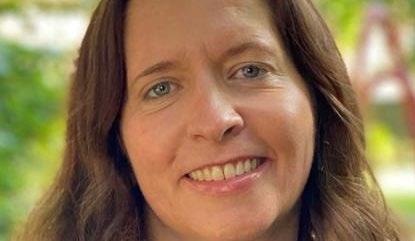
Siân Sutherland is Co-founder of A Plastic Planet , one of the most recognised and respected organisations tackling the plastic crisis and PlasticFree , the first materials and systems solutions platform, empowering the 160m global creatives to design waste out at source. An award -winning serial entrepreneur, Sian is passionate about igniting social change, creating purposeful brands and businesses. The launch of PlasticFree, a new solutions platform for the wider creative industries at Parsons School of Design (The New School NYC) was in February 2023.
https://www.dezeen.com/2023/02/16/plasticfree-our-incredible-future-nowtalks-climate-change/
Linkedin: @siansutherland

Tanita Tikaram, the award-winning singer songwriter has one of the world’s most distinctive voices and is enjoying a renaissance. Tikaram first made a splash on both sides of the Atlantic at a mere 19 years old with her poetic lyrics and haunting voice. The offspring of Malaysian and Fijian parents, Tikaram moved to England at age 12 and began writing songs as a teenager. She played her first gig at 17 years old in London after a favourable response to her demo tape from a club she had sent it to and was immediately signed to Warner. Her debut album Ancient Heart co-produced by Rod Argent and Peter Van Hooke was released in 1988 and both Twist in My Sobriety and Good Tradition were hits in Europe, and Tanita toured the world.
In 2019 broadcaster Pete Paphides released a career spanning anthology of Tanita’s work entitled To Drink The Rainbow, through his acclaimed label Needle Mythology.
In 2021 alongside four other black female singers, Tanita took part in Sonia Boyce RA OBE Feeling Her Way exhibition at the Venice Biennale which went on to win the Golden Lion Award.

Tanita is currently recording her tenth studio album. http://www.tanita-tikaram.com/
Professor Dilys Williams is founder and Director of Centre for Sustainable Fashion, a University of the Arts London Research Centre, based at London College of Fashion. Dilys’ practice explores fashion as a conduit for living well together as humans in a more than human world. This is applied into education, business, public and political spheres. As Special Advisor to a UK House of Lords All Party Parliamentary Group, and via the UNFCCC Fashion Charter Advisory Panel, she brings climate and social justice considerations into key discourses. Trained at Manchester Metropolitan University and drawing on extensive experience as a practicing designer, she publishes in international academic journals, books and media outlets. Dilys is a keen contributor to explorations that sit at the tension between where we are and where we might be.
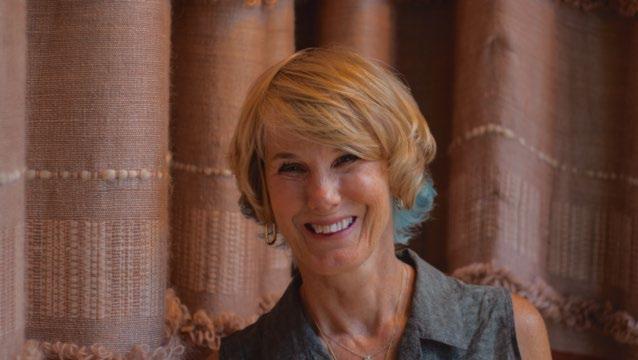
www.sustainable-fashion.com
https://researchers.arts.ac.uk/1064-dilys-williams

Bulley, James and Sahin, Özden Practice Research - Report 1: What is practice research? and Report 2: How can practice research be shared?. London: PRAG-UK, 2021. https://doi.org/10.23636/1347 .Practice Research - Report 1: What is practice research? and Report 2: How can practice research be shared?. London: PRAG-UK, 2021. https://doi.org/10.23636/1347.

Christopher Bannerman and Cahal McLaughlin, “Collaborative Ethics in Practice-as-Research,” in Practice-as-Research in Performance and Screen, ed. Ludivine Allegue, Simon Jones, Baz Kershaw, Angela Piccini (Basingstoke: Palgrave Macmillan, 2009), 64-80.
Liamputtong, Pranee and Jan Rumbold, eds., Knowing Differently: Arts-Based and Collaborative Research Methods. New York, NY: Nova Science Publishers, 2008. Leavy, Patricia. Method Meets Art: Arts-Based Research Practice, 2nd edition. New York, NY; London: Guilford Press, 2015.